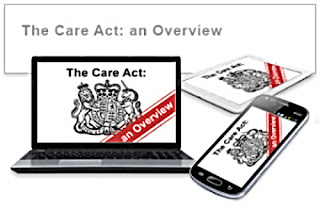According to CIPD’s
annual survey report for Learning and Development 2015 ‘three quarters of
organisations use learning technologies – but face-to-face delivery remains
dominant.’ The traditional face-to-face approach adds a personal aspect where
learners can ask questions and gain insight through storytelling and listening
to others, ensuring key learning points are understood by the whole group. But,
is this method alone enough to meet all of the needs within an organisation? Is
a blend of face-to-face and online learning the answer?
E-Learning
Clients are increasingly choosing e-learning as their preferred method
of delivering training, with 29% of CIPD respondents selecting it as their most
common form of training. The ability to train a large dispersed workforce is a
key factor, as it allows staff in various locations to access the same high
quality training course at the same time, whilst saving precious time and money
that would be otherwise spent on travel, accommodation and refreshments.
Other reasons for choosing e-learning include:
Ø Flexibility -
access to courses 24/7
Ø Consistently
high quality content
Ø LMS tracking
Ø Easy to
arrange for high turnover areas such as domiciliary care
Ø Easy to reach
national or international audience
Ø Large numbers
of learners can be trained simultaneously
E-learning can be carried out at a time, place and
pace to suit the individual learner
The Learner Management System (LMS) reporting that comes with e-learning
is great for both internal and external trainers to monitor and provide reports
to client organisations, helping to monitor ROI for training costs. LMS learner
tracking provides an audit trail for managers and CQC regarding who has
completed the training, allows managers to co-ordinate training, and, monitor
in real time, which learner has completed which course/s.
It would be wrong to say that face-to-face training is not effective, it
is still the most dominant form of learning, but the cost of implementation is
far more than with e-learning. Staff are required to take time out of their
day-to-day activities, sometimes travelling across the country to complete a
day of training in a classroom which would convert to just 1 hour of
e-learning. As a trainer, wouldn’t you want to be able to provide a service to
clients in all four corners of the British Isles, at the same time, on the same
day?
Of course, there are limitations with e-learning - most notably, the
lack of immediate feedback that face-to-face trainers would receive, and the
elimination of the group experience of learning in a classroom. However, these
are outweighed by the need for flexibility, the cost of training a dispersed
workforce and the fact that many individuals prefer to learn at a time, place
and pace of their choosing. Our stats at Embrace-learning bear this out
consistently - when asked “What did you like most about e-learning?” the
overwhelming answer is “I did it at my own pace when it was convenient for me”.
Blended Learning
Blended learning offers a collaborative and holistic approach to
learning, delivering the best of both worlds to employees and enhancing the
overall learning experience. 40% of CIPD respondents plan to increase the use
of blended learning over the next 2 years, making now an ideal time for
training companies to increase their product offering to include e-learning
courses alongside their face-to-face training.
Offering a range of e-learning courses means that training companies can
deliver courses normally considered to be outside of their realm of expertise.
For example, as a fire safety trainer, wouldn’t you want to be able to say to
your clients – “yes, I can provide you with high quality training in Dementia
for your care staff”?
A Health and Safety training company could also offer courses on mental
health, safeguarding adults, dementia etc., widening their target audience and
providing a service to large clients, with complex training needs.
Here at
Embrace-learning, our aim is to further the use of educational technologies in
work-related training. We have over 10 years of experience in providing high
quality e-learning courses that are up-to-date and relevant to today’s
workforce. We believe that through offering e-learning courses alongside
face-to-face training, organisations can provide their employees with all of
the necessary skills, knowledge and training required to perform to an
exceptionally high standard.
Is a blended approach
to learning the best way of meeting learning and development needs within an
organisation? We think so! What do you think?
To find out more about
our e-learning courses and partnership opportunities, visit our website
here.
Click
here to view the full CIPD Learning and Development
Report 2015




